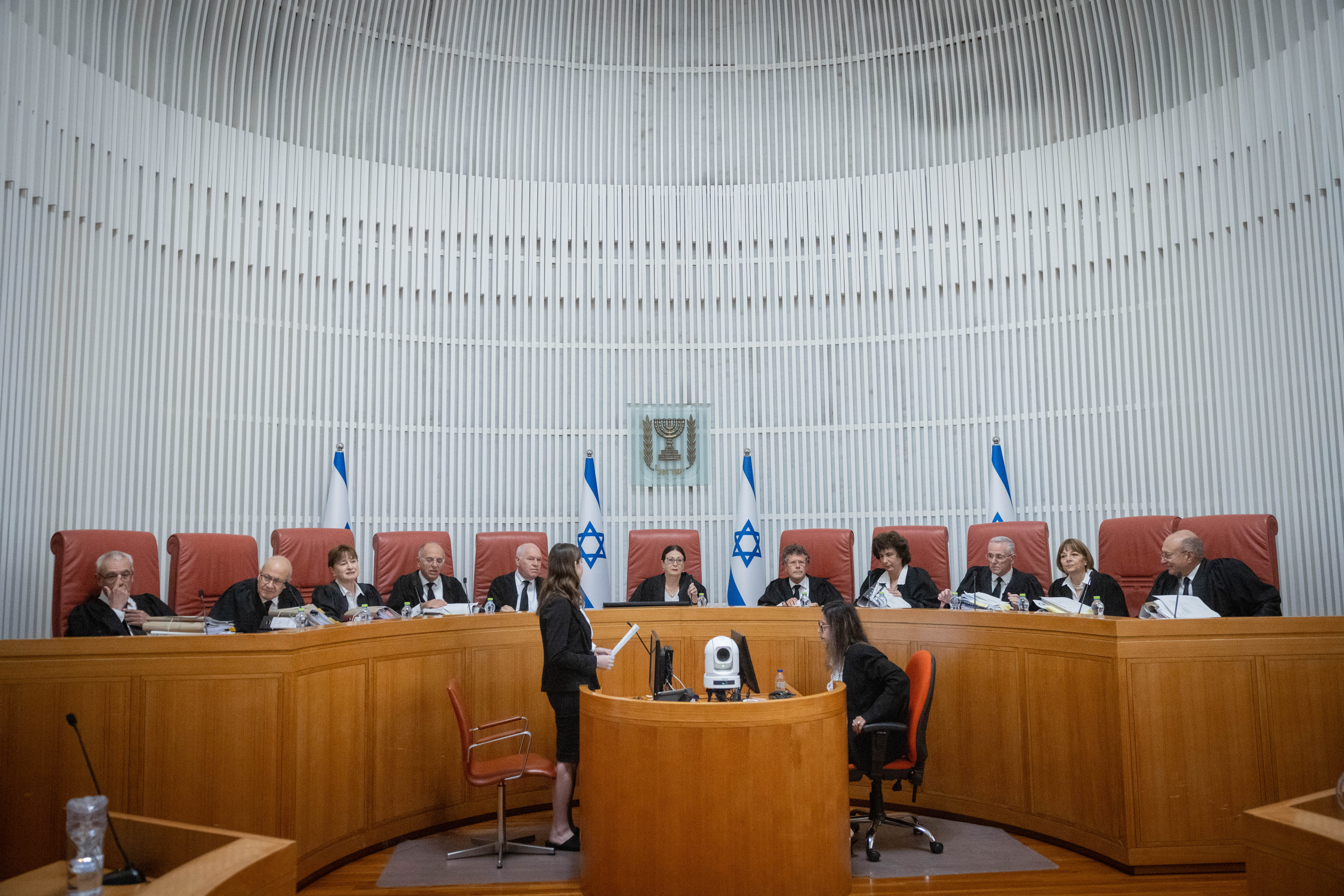Israel is Now a Juristocracy
If the leaked opinion on the reasonableness standard holds true, the people of Israel will no longer have the power to do anything judges don't like, law or no law.

In 1995, several days after the Rabin assassination, the Israeli Supreme Court issued the Bank HaMizrahi decision, in which it transformed Israel into a constitutional democracy despite not having a constitution. The decision, which gave the Court the power to strike down legislation for the first time and heralded the so-called "Constitutional Revolution," largely flew under the radar.
This week, in the midst of Israel's most difficult war since the War of Independence, the Court is expected to issue an even more dramatic ruling, cementing its role as the supreme branch of government. Unlike the original inconspicuousness of the Mizrahi Decision, this ruling has the potential to reignite the civil discord that prevailed until the deadly October 7th Hamas attack.
The significance of the ruling goes far beyond simply reinstating the reasonableness standard, which the Knesset abolished in July of this year. This will be the first time that the Supreme Court strikes down a Basic Law, previously ruled to be the pinnacle of Israel's normative pyramid and the very basis of the Court's power to overturn legislation.
The significance of all this is that the drafting of an Israeli constitution is out of the hands of Israel's citizens and their elected representatives. From now on, Israel's constitution will whatever the Court decides and will only be amendable only under the conditions that it allows.
For decades, Israeli academics, public officials and laypeople have suspected and proposed that the Court's self-derived power of constitutional review was based on a fundamental work of sophistry.
The Court and activist jurists had always consistently argued back that Basic Laws were intended to create the power of constitutional review. The Court, they argued, was simply applying the Knesset's legislative intent; if the Knesset has a problem, it can always amend the Basic Laws. Now that the Knesset has legislated a Basic Law amendment that somewhat limits the Court's power, the Court has declared itself supreme over the Basic Laws themselves.
As former Chief Justice Aharon Barak explained in an article issued several weeks before the hearing in order to influence the decision, popular sovereignty is not expressed in democratic elections, but rather in the 1948 Declaration of Independence. The Declaration, with all of its historical significance, contains no legal or operative clauses and was finalized by one man, Ben Gurion, who didn't even intend it to serve as a constitutional text. Its meaning can only be discerned by the hidden wisdom of the justices themselves.
The Declaration, of course, cannot be changed in any way. According to Barak, the only way to amend the limitations that the text supposedly imposes on the Knesset is to create a new Israeli state.
Israel's system is government is now unique – it has a judicially created constitution which can only be made known by the judges themselves, and which cannot be revised.
The forthcoming decision validates the critics of the Court who claim that it is a politicized and self-aggrandizing institution clothing itself in the garb of judicial neutrality. The speed with which the Court is about to publish a decision on an issue that has polarized Israeli society for at least a year, and which has only been put on hold due to the war against Hamas, is unprecedented.
The sole reason for the haste is to allow Chief Justice Hayut and Justice Baron to participate within the three months allotted to justices whose term has expired. The 2020 ruling on the Jewish Nation-state Basic Law, by contrast, was issued three years after the petitions against it and one year after the ruling.
Opponents of the reasonableness amendment argued that it was passed too quickly and by a small majority. These limitations do not apply to the Supreme Court – Hayut's desire to leave a legacy trumps all other concerns. Israel's status as a juristocracy will be confirmed by the barest margin of 8 judges against 7.
Like God in the Book of Genesis, the Court speaks and the law exists.
Hayut wrote that such an important amendment as reasonableness must be passed with broad political consensus. While that may be correct on a practical level, this is a new procedural requirement invented by the judges based on what "seems right." Rulings no longer rely on textual analysis but are only bound by the limits of the judges' legal creativity. In this reality, there is little difference between a legal ruling and a glorified op-ed.
In the wake of the reasonableness decision, it is apparent that the restoration of Israel's democracy to its citizens will be a generational project. It is incumbent for both proponents and critics of judicial activism to debate these issues calmly and with mutual respect. In the face of the existential threats that the country faces, we must continue defending our Jewish homeland, even if it is a juristocracy.
Avraham Russell Shalev is a lawyer and researcher in the Kohelet Policy Forum's legal department.